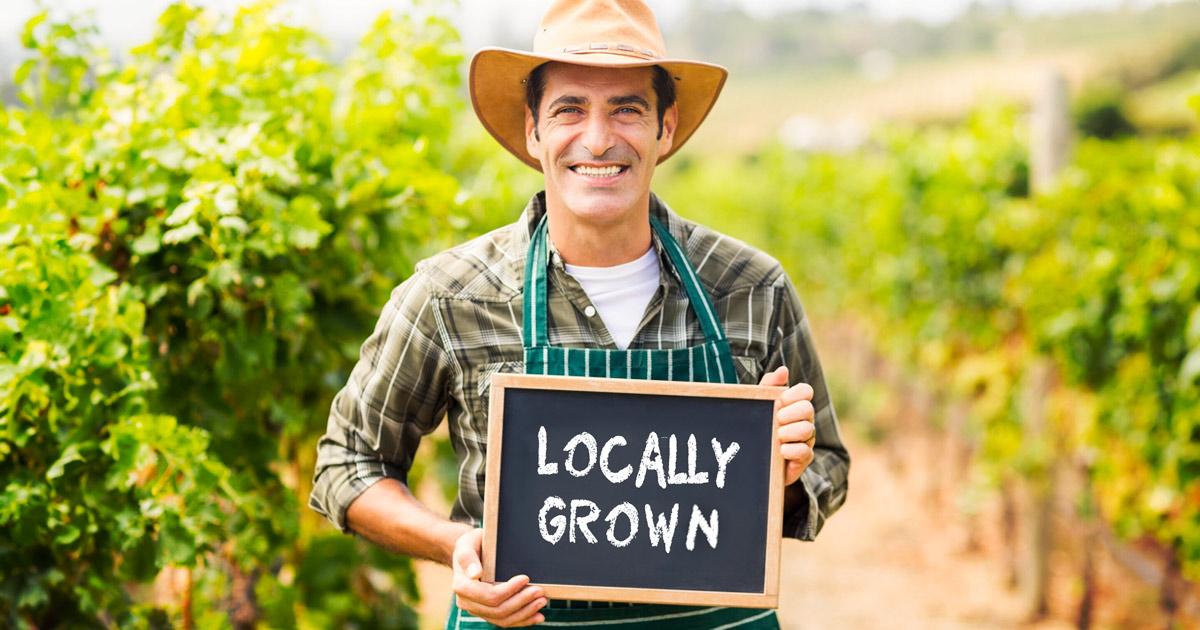What is Local Sustainable Food Chain? An Insight into Sustainable Food Sourcing

Sustainability, particularly in the realm of food resources, is a topic of growing importance in our society today. Imagine waking up each morning and stepping into your backyard where a lush vegetable garden awaits, providing you with fresh, healthy produce for your meals. This scenario depicts a simple, yet powerful representation of a sustainable food system on a micro level. When expanded to a larger scale, such as a community or even a city, this concept forms the basis of what we call a local sustainable food chain.
The food production system and our diets both have a significant impact on sustainability, according to Harvard University’s The Nutrition Source. A sustainable food system ensures that everyone has access to food security and nutrition without compromising the economic, social, or environmental foundations necessary to ensure food security and nutrition for future generations.
Studies demonstrate that a sustainable food source does not harm the environment, destroy biodiversity, increase poverty, or deplete natural resources. In fact, by 2050, global emissions of greenhouse gases would decrease by 64% if production and consumption of animal-based foods were reduced by 50%.
What is a Local Sustainable Food Chain?
A local sustainable food chain refers to a system where food is produced, processed, and distributed within a specific area, typically defined by a certain radius from the center of production. The sustainability of this food system is intended to include social equity, economic viability, and environmental health.
The benefits of a local sustainable food chain are numerous. For one, it supports local economies and farmers. It also promotes sustainable agriculture and allows for evaluation of ecological practices. Additionally, local food may have higher nutrient value due to longer ripening time and often tastes better.
According to Frontiers research, long-term sustainable agriculture must operate within its environmental boundaries in order to be sustainable. The key considerations of this include reducing air, water, and soil pollution and protecting the biodiversity that sustains human life.
Why Should a Community Use Sustainable Practices to Produce Food?
Embracing sustainable practices in food production can have numerous benefits for a community.
1. Maintaining Soil Fertility
Sustainable practices in food production help to maintain soil fertility. By using methods such as crop rotation and cover cropping, farmers can ensure that their soil remains rich in nutrients and capable of supporting healthy plant growth.
2. Reducing Erosion
Sustainable farming practices often involve measures to reduce soil erosion, such as contour plowing and the use of windbreaks. This helps to prevent the loss of topsoil, preserving the land’s productivity for future generations.
3. Promoting Biodiversity
Sustainable agriculture promotes biodiversity, both in terms of the variety of crops grown and the wildlife supported by the farm ecosystem. This can contribute to a more resilient and productive farming system.
4. Conserving Water and Energy
Compared to conventional farming methods, sustainable agriculture typically uses less water and energy. This can result in significant environmental benefits, including reduced greenhouse gas emissions.
5. Supporting Local Economies
Small farms and rural communities can become more economically viable through sustainable farming. By focusing on quality over quantity, farmers can charge premium prices for their sustainably grown products.
6. Diversifying Crop Production
Diversifying crops not only reduces economic risk but also provides a variety of fresh produce for the local community. This may lead to increased diet diversity and food security.
7. Improving Working Conditions
From a social perspective, sustainable farming practices can lead to better working conditions. By reducing exposure to harmful pesticides and promoting healthier labor practices, farms can ensure a safer and more equitable workplace.
8. Promoting Healthier Labor Practices
Sustainable farming practices often prioritize the well-being of workers. This may entail offering just compensation, respectable working conditions, and chances for skill advancement.
Embracing sustainable practices in food production can have numerous benefits for communities, from environmental conservation to economic resilience and social equity. More communities ought to take into account this win-win situation.
Wrapping Up: Why Is Local Sustainable Food Better?
Choosing local sustainable food introduces a myriad of benefits over food that has been transported over long distances. First and foremost, locally sourced food is fresher, often resulting in better taste due to its natural ripening process. This freshness can also lead to a higher nutrient content, as some nutrients start to degrade soon after harvest.
In addition, local food systems offer transparency that consumers appreciate. Consumers have the chance to fully understand the origins and production processes of their food. This transparency builds trust and fosters stronger relationships between farmers and consumers.
Local food systems also play a significant role in reducing the effects of climate change. We significantly reduce transportation-related carbon emissions by shortening the distance that food travels from farm to plate.
To wrap up, local sustainable food chains offer an effective solution to many environmental, economic, and social challenges we face in today’s world. By choosing to support these systems, we are taking a step towards creating a healthier planet and a more secure future for all. Let’s continue to champion and uplift local sustainable food chains for the benefit of our communities and our world.
